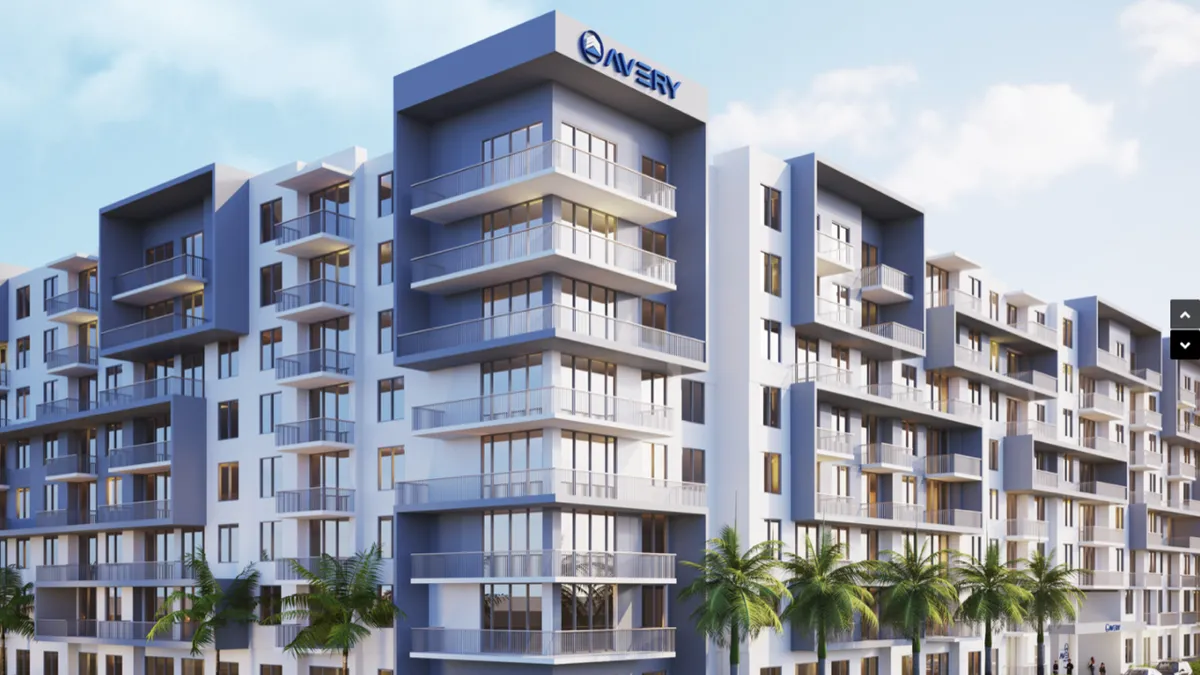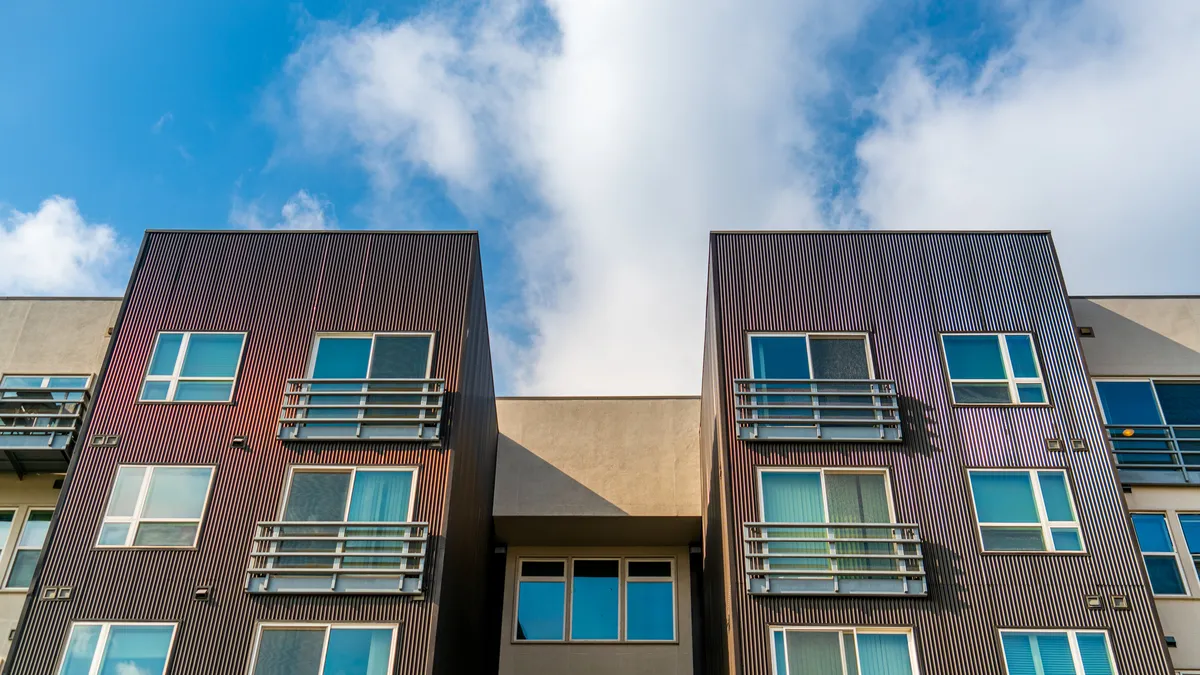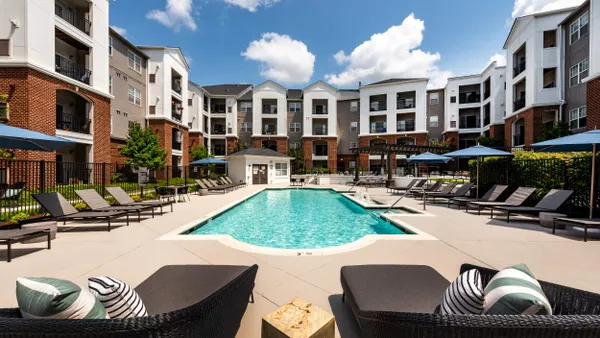A lot of apartment developers want to secure land in Florida and participate in the Sunshine State’s rental housing boom.
One company, Accesso, may have found a way to unlock growth through a partnership. In April, the Hallandale Beach, Florida-based commercial real estate investment manager, owner and operator partnered with Aventura, Florida-based multifamily and mixed-use real estate developer Meyers Group to form Meyers Group Partners. The entity plans to construct 5,000 units and approximately 1.5 million square feet of retail and office space in southeast, southwest and central Florida.
In addition to those projects under the Meyers Group banner, Accesso, which is building Avery Lake Worth Beach in Florida (pictured above), has projects in the pipeline in the Carolinas and Texas.
Here, Ariel Bentata, founding and managing partner for investments at Accesso, talks with Multifamily Dive about why the company likes the Sun Belt, the land market and where cap rates are going.
This interview has been edited for brevity and clarity.
MULTIFAMILY DIVE: What attracts you to development in Florida?
Ariel Bentata: Florida, first of all, is our headquarters and it's certainly one of the fastest growing states in our nation. There's a lot of migration into Florida from many other places. There's a net deficit of apartments and, with migration, that deficit is bound to grow. We feel like some of the areas we are investing in have pretty large [building] constraints and that generates a lot of long-term value for investors.
Do you see similar dynamics in the Carolinas and Texas?
Those are all places where there are a lot of corporate relocations happening. There is a great quality of life and low taxes. Many cities in these states are in the top 20 cities that people are moving to. We feel this bodes really well for long-term value.
How challenging is it to secure land in these hot markets?
Well, getting land under control at a reasonable price is very hard. People are just asking for crazy numbers for any parcel. But, at the end of the day, you're always able to find pieces that you can assemble or parcels that you can work on rezoning.
You've got to provide the cities with the vision of how you're going to be improving the living environment and how you're going to bring all of these great amenities and retail and services to the city. Generally speaking, they've been very favorable in working with us to upzone some of these parcels to allow a greater density that then makes the project work
Are you focusing more on suburban or urban areas?
We have a combination of infill projects that are in areas that are very urban and a few projects that are in suburban areas. In those [suburban] projects, we like them to be in proximity to a lot of amenities within walkable distance.
These urban nodes within the suburbs are becoming very popular. Like, in Austin, for example, we're developing in the northwest right next to the Apple campus. It's a suburban area but it's an area that is getting a lot of new restaurants and retail and has a lot of housing around.
We have a lot of really large corporate users and we think it's going to be a great place to invest in.
We’re seeing a lot of new apartments being built. Are you concerned about overdevelopment? And how are you protecting yourself?
If we look at the amount of migration into [Florida], we are far, far from delivering the amount of units that you will need just to accommodate the people that are moving in. So we're not as concerned about that.
But in order to protect our investments long term, we're investing in areas that either have existing, walkable, amenities or we’re developing in places where our mixed-use projects are going to bring amenities to the people who are going to be living there.
With interest rates rising, where do you see cap rates moving?
We’re being very conservative [with our projections]. But in general cap rates are much more correlated with liquidity than they are with interest rates, historically. So there is a case, and it has happened many times, where interest rates increase and cap rates decrease. We think it is probable the same thing will happen this time around.
There's plenty of liquidity out there that is looking for a higher yield. Real estate, especially rental apartments that reset every year, give investors a good opportunity to obtain a nice yield.
Click here to sign up to receive multifamily and apartment news like this article in your inbox every weekday.











